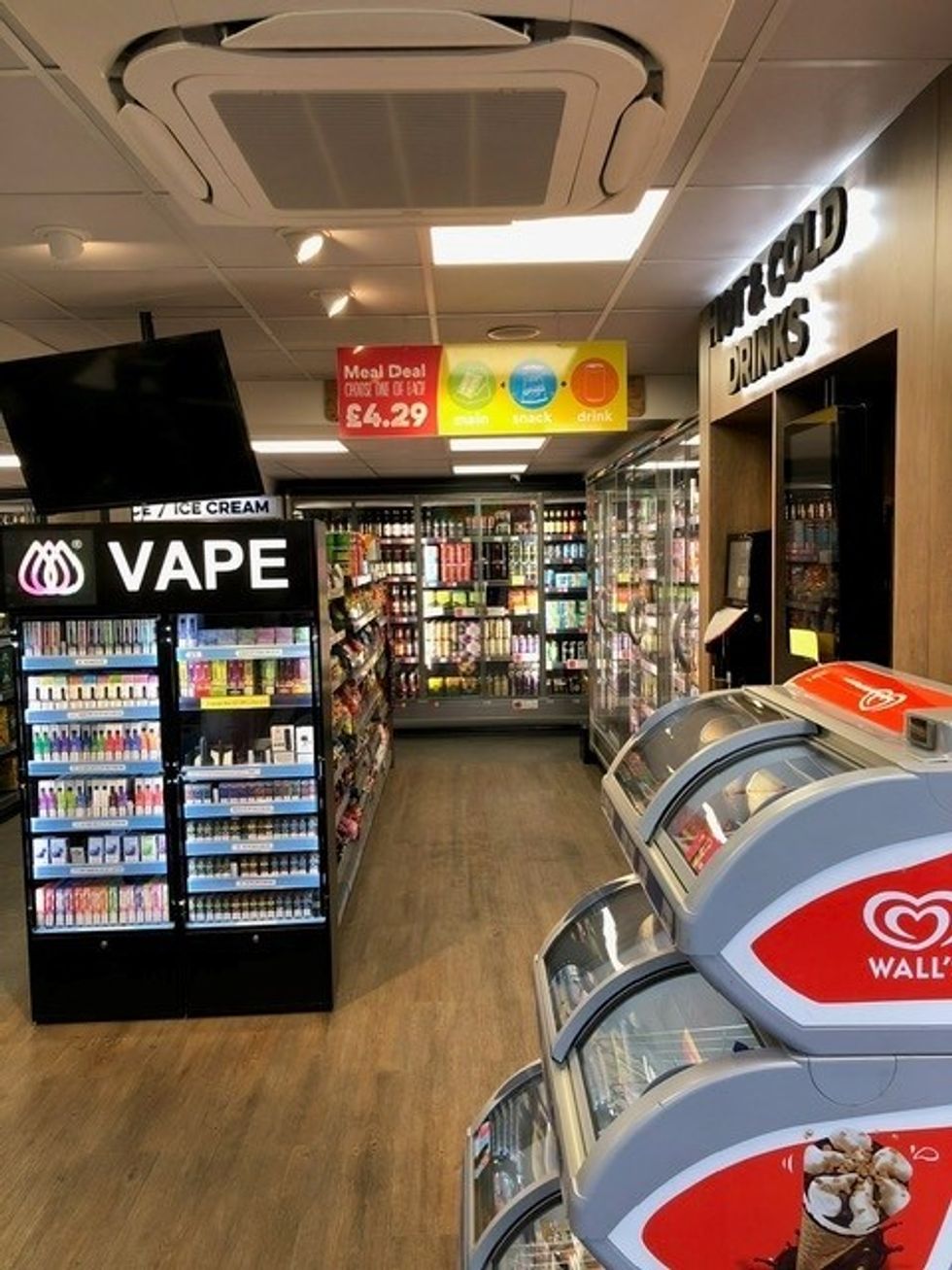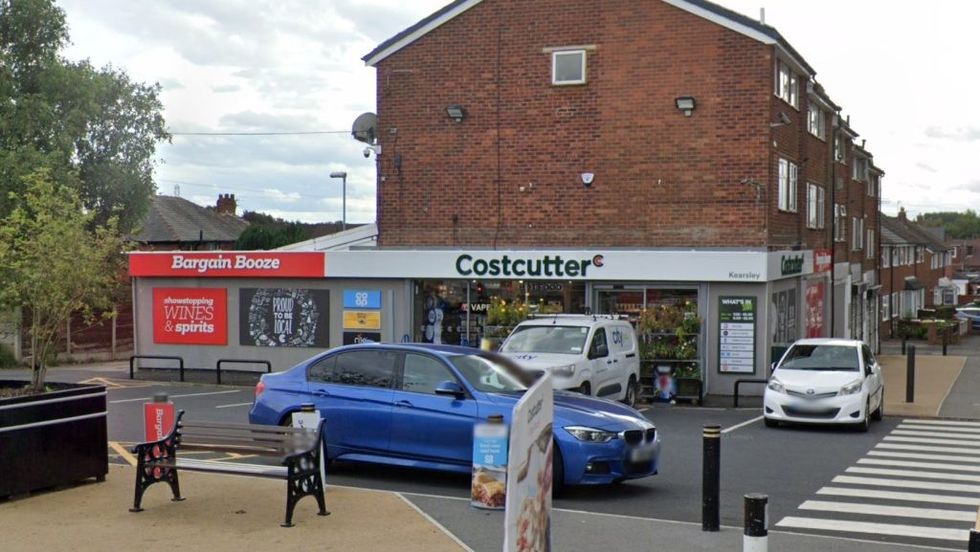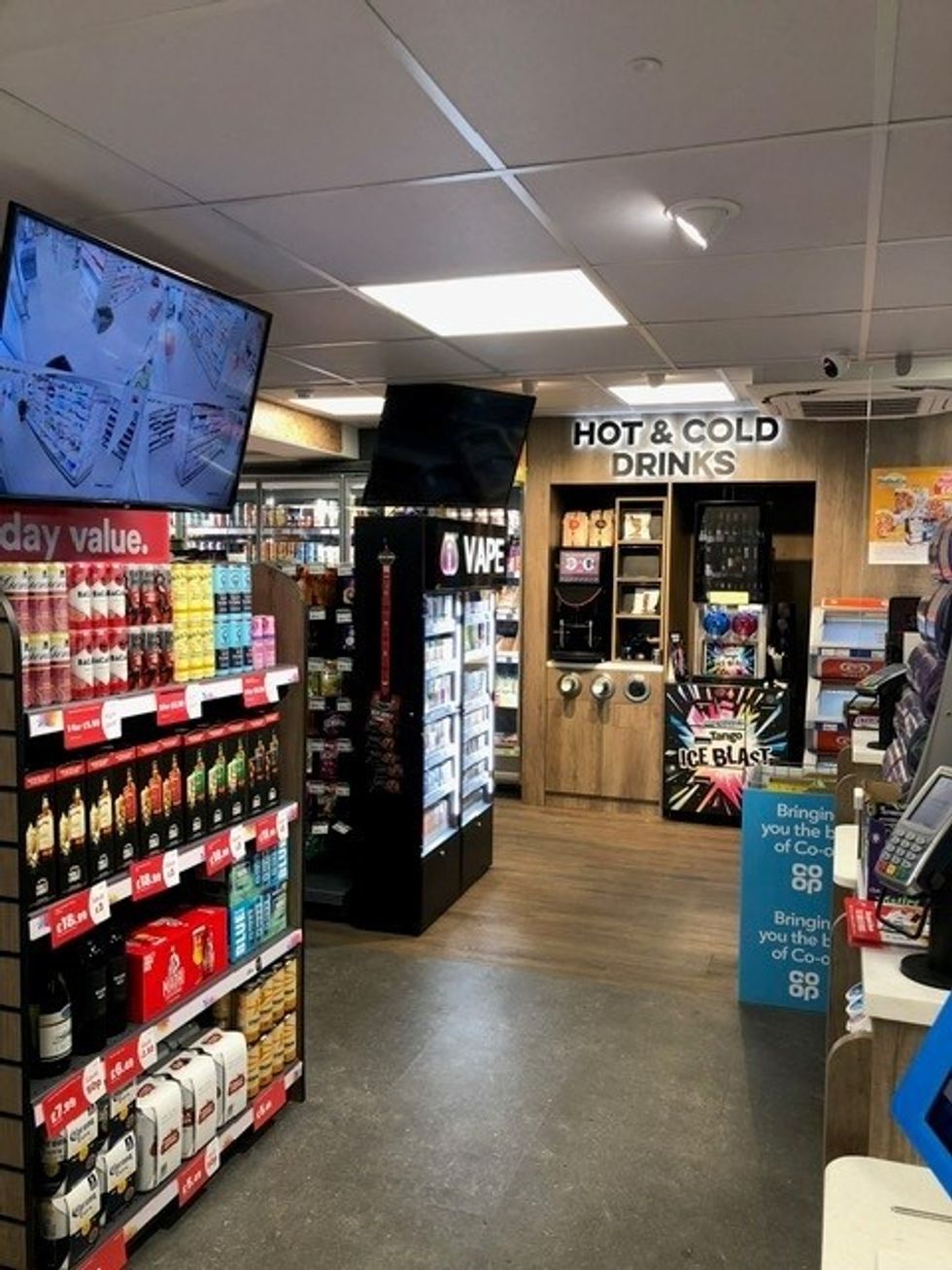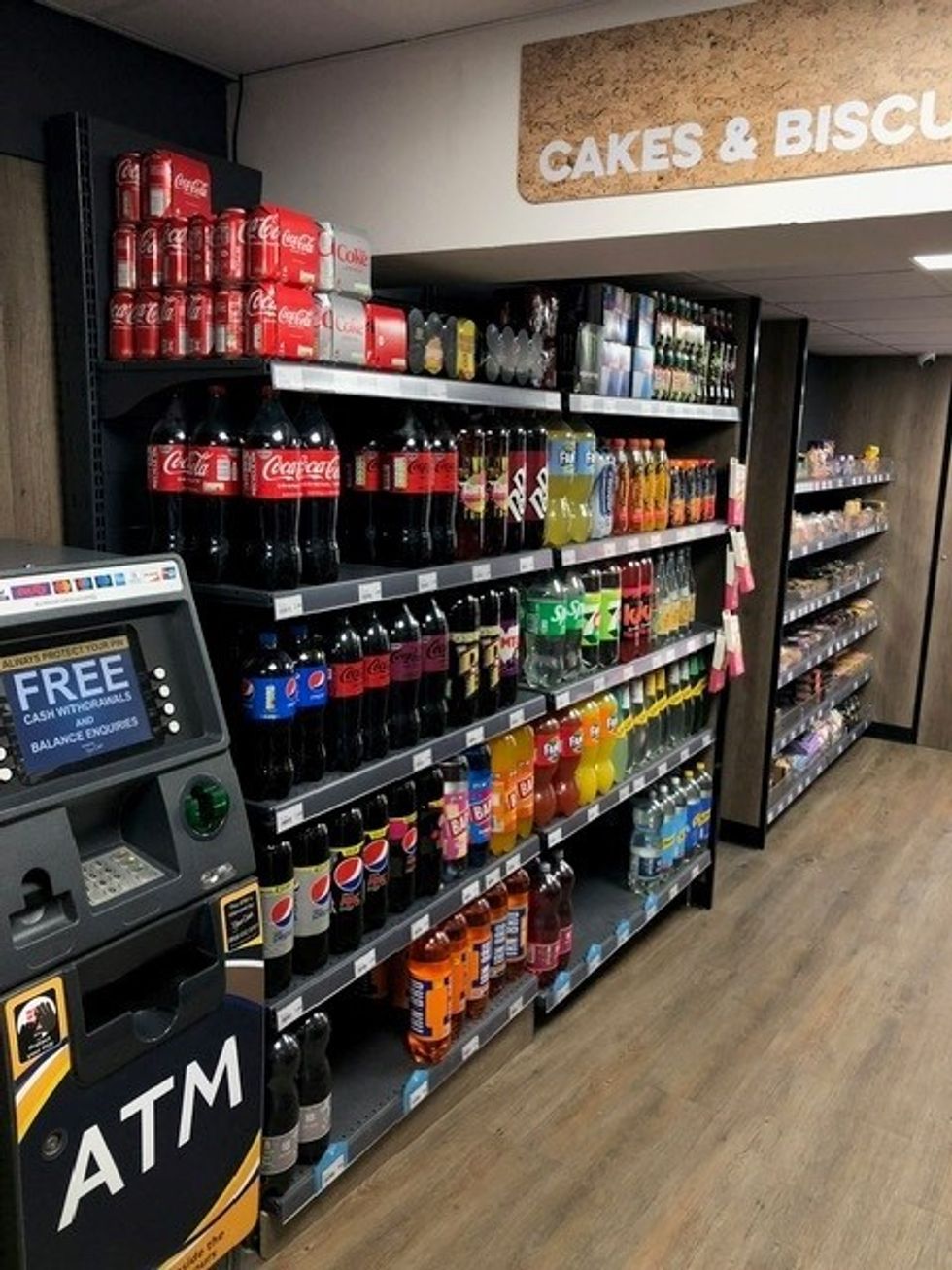Kersheaup Vagadia leads the way for a next generation taking over and enhancing family stores while keeping the warmth and tradition intact
Having grown up in the family shop as a witness to how the store grew to become a central hub for the local community, Kersheaup Vagadia has now taken the business to another level. After a recent £250,000 refit, his Costcutter store is truly stunning, with the full convenience offering of chilled and ambient foods, fresh fruit and veg, a branded off-licence, fresh meats and ready meals.
The store, located in the Kearsley Mount Precinct building, a residential project on Manchester Road in Kearsley, Bolton, is both groundbreaking and innovative, defining the future of convenience retailing. It now houses a Bargain Booze off-licence inside the Costcutter – a “store within a store”. This new innovation has been hugely popular with a 40 per cent increase in footfall and a near 50 per cent increase in revenue – which makes Kersheaup truly a chip off the old block, and a worthy recipient of the Next Gen Award at the 2023 Asian Trader Awards.
Kersheaup’s parents moved from London in the 1990s to buy the store but his father, Shashi, sadly passed away in 2000, when Kersheaup was just seven, and his mother, Vanita, leased it to his uncle.
But he and his brother Nilesh weren’t always planning on following in their footsteps.
“When we were of age, we wanted to do further education and go through a different career. But we chose to stay in retail and continue the family business,” Kersheaup says. “From there, we took our shop back and we grew it and we bought another shop. We've also got an online business, with an 18,000 sq. ft. warehouse. It’s family managed, my mother, me and my brother.”

Nilesh concentrates on the online business, Exclusive Deals Ltd, which sells a vast range of office products, health & beauty, DIY & tools, toys & games and luxurious bedding supplies at competitive prices.
The connection they share with the community has been a major motivation for them to pursue a career in retail. Kersheaup’s parents knew every single one of their local customers by name – and their children too!
“We already knew our community, and we knew what they wanted. We knew a lot from growing up around the shop, that the relationship you have with your local customers is what makes the difference with a store,” Kersheaup says.
The lessons he learned from his uncle, Govind Naran, who runs five Food & Tipple stores in the Greater Manchester area, have also been invaluable, particularly the “power of delegation” and how to bestow authority and agency on the team so that you have time and energy to focus on long term plans for the store and how you are going to achieve them.
“My uncle has now five shops, and we have multiple shops under the business, so the only way we go is through delegation. If we don't tell our staff and pass the workload on, there is no way of growing our business,” Kersheaup says.
And, training is key in this process, he adds. “If you train the staff well, they'll be able to give a good work output.”
Enhancing the store
They took over the running of the store in 2015 and are situated in a most strategic position on a main road that connects Manchester and Bolton. There are three small industrial estates and a small shopping precinct along the road, and they are surrounded by a bustling community, presenting them with a unique blend of local loyal customers and a steady stream of passers-by.
Yet, they have been seeing sales slowly declining year on year, which Kersheaup attributed to the change in the market and the high competition in the area – there are a handful of small convenience stores spaced out in the area, and a Tesco Express right next door. In response, they invested approximately £250,000 in the refurbishment of the store last year, which Kersheaup says has completely revolutionised the way they do business.
“We decided to go all out and spend large amounts of money in rebuilding the entire store from scratch,” he says. “We were the fourth store to trial Costcutter with a Bargain Booze format inside. We thought it was a good idea, as there's never been two facias on one shop. We merchandised everything to the Costcutter specification and also added our local value, local produce, into this as well.”

The innovation has proven to be incredibly rewarding as they have since seen outstanding sales, surpassing their expectations.
“We've seen huge benefits across all departments. Our footfall’s increased, basket spending increased and margins have increased. There's nothing that's been on a decline. All sectors and all departments have increased,” Kersheaup says.
He says his parents always offered their customers the best deals and prices they could, and he continues to do the same today. When they did the refit, they also added extra shelving, and increased the shelving height, to help them increase their range.
“We focused on increasing our Co-op Own Brand range. We've also highlighted it by doing Co-op banners and Co-op shelves in store. And it's turned out that Co-op is the main footfall driver for the store now,” he says.
They have expanded the Co-op Own Brand Range by 22 per cent, introducing the Co-op Honest Value range, giving better value amidst the cost-of-living crisis. This has led to increased sales, and their chilled and fresh produce section has been the standout performer, with sales tripling. Fresh meat and ready meals also outperformed their previous store’s sales.
“We instantly noticed the increasing footfall. There were many new faces that we've never seen, along with our regular customers. Also our regular customers were spending more than usual. It was because of the extended chilled range,” he says.
“In our old shop, we only had 3.5 metres of chilled. Now we've gone to gigantic 14 metres of chilled space. So their baskets are getting full. We're now stocking an extra 30 per cent more products in the shop. So the sales have increased as well. And also our hot food was on £150 pound a week in sales. That's now gone up to £1200 a week.”

He says merchandising – where you place the categories – is all important when you go for a refit. “Costcutter helped us plan the shop, and the foot flow – how the customer walks into the shop, and how they get extra spending to the basket. That's key. And that's how the sales will increase,” he says.
Kersheaup wants to keep in line with the market trends to sustain the momentum. “Any new products, any new ideas, we're welcome to try it out in our store. We'd have to keep changing the store around and keeping it updated.”
It is a trait he acquired from his parents, who were always looking for new ways of doing things. When they bought the store, it was a small 500 sq. ft. corner shop. In the late 1990s they undertook a small extension and refurbishment and shortly after, joined Costcutter. While his uncle ran the store, with his mother working beside him, another extension and refurbishment was completed, taking the store to 1800 sq. ft.
Local and loyal
They run a Costcutter loyalty scheme in-store where customers have a loyalty card and every time they visit they can get points. Since the introduction of this scheme, Kersheaup says they have attracted both new and regular customers. They also hold promotions, sometimes offering triple loyalty loyal points on certain products.
“For every pound you spend in store, you get one loyalty point back, which is equivalent to one pence,” he explains. “This can be changeable per retailer, you can change it however you wish. You can also do extra loyalty points on a specific product. For instance, if you want to do a special offer on a certain type of beer, and you want 50 loyalty points per item, you can do that. And we've seen an increase on loyalty transactions. They mostly tend to spend it during Easter or Christmas, where they get £20-£30’s worth of free shopping.”
The store caters for a diverse range of customers who shop with them throughout the day to satisfy different consumer missions.
“Our clientele includes elderly people who stop by in the mornings for newspapers for a slow and leisurely start to their day. During lunch hours, we welcome workmen, builders, and office workers within the area, followed by parents and their children who drop in after school hours, and everyone in between. In the evenings we attract young adults who visit to purchase their preferred alcoholic beverages,” he says.
“So overall we cater for these wide variety of customers and have designed our store and our range to ensure we have something for all!”

During the pandemic they approached local suppliers to source products for the store as there was a shortage of products available nationwide. Kersheaup says they were delighted to discover that the customers loved the local suppliers’ products, even though they were more expensive than the bigger brands, and they have retained these local supplier partnerships.
“After the refit, we introduced a number of local suppliers,” he says. “One of them was a local meat supplier; it’s from a nearby farm. They were already known locally to everyone, for high quality. They weren't exactly value for money, but the quality was very good. And a lot of people knew that this meat was high quality. So they're interested to know that it is stocked in our shop.
“And then there's another, Carrs Pasties, which is a local Bolton supplier. That's one of the strongest pasty brands in the area. So, everyone at lunchtime would be buying that. Builders would know, customers would know these local brands and will be coming to our store just because of all that local produce.”
Kersheaup says he learned many things from his parents growing up – how important it was to know your customers well, to look for new ways of doing things, always to focus on offering the products that the customers want and how important exceptional customer service is.
But the single most important lesson would be: “To not forget the basics of retail, but to also add to that, add more to the value of the basics that you've learned. Good customer service, keeping everything in stock, they are the basic items, then to add to that, to add value to the business.”






